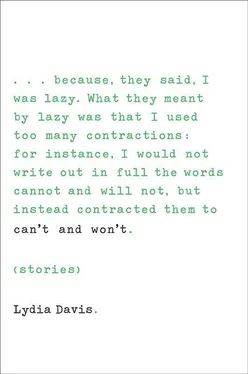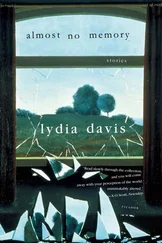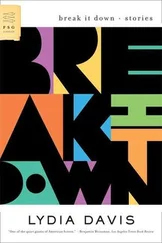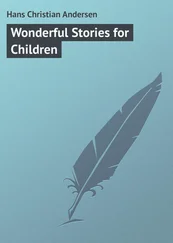Two Sligo lads are on their way to work at an immense factory that looms up ahead of them on the horizon. Abruptly, then, they are whirled up into a fairground ride consisting of spinning cars moving in elliptical arcs, so far above me that they are mere specks in the sky. As they revolve, crossing over and over, they cry out to me “Hello, hello,” again and again, at irregular intervals. Then the ride is gone, but they are still there, circling. They might now be seagulls.
dream
Standing near me is a tall woman in a dark red dress. She has a dazed, rather blank expression on her face. She might be drugged, or this is simply her habitual expression. I am a little afraid of her. A red snake in front of me rears up and threatens me, at the same time changing form once or twice, acquiring tentacles like a squid, etc. Behind it is a large puddle of water in the middle of a broad path. To protect me from the snake, the woman in the red dress lays three broad-brimmed red hats down on the surface of the puddle of water.
dream
If at the Wedding (at the Zoo)
If we hadn’t stopped on our way to the ceremony to look at the pen of black pigs, we wouldn’t have seen the very large pig lunge at the smaller one, to force him away from the feeding trough.
If we hadn’t come early and seated ourselves on a bench in the sunlight under the pavilion roof to await the start of the ceremony, we wouldn’t have seen the runaway pony trot past trailing its rope.
If we hadn’t heard the sudden murmur of our neighbors on the benches in the cold sunlight under the pavilion before the start of the ceremony, we wouldn’t have looked up to see the bride coming in her bright green dress from a distance walking briskly with long strides hand in hand with her mother.
If we hadn’t craned our necks to look around the people standing in front of us prepared to officiate and take part in the ceremony, we wouldn’t have seen how the bride came, her head bowed, her mother’s head bowed, her mother talking seriously to her, the two of them never looking up, as though there were no one else present, towards the pavilion, the guests, the poised cameras, the ceremony, and her future husband, who stood waiting for her.
If we hadn’t looked away from the ceremony in which the couple getting married stood before their officiating Buddhist friend while their other assembled friends and family chanted Indian and other chants, we wouldn’t have seen the Hasidic and Asian families walk past the pavilion gazing curiously at us on their way to and from the Corn Maze.
If we hadn’t walked across the room in which the reception was beginning, past the two accordionists, man and woman, to look out the back windows at the wedding party being photographed in the cold October sunlight late in the day to the sound of klezmer music, we wouldn’t have seen the two families of pheasants run along the crest of the pumpkin field towards the shelter of the woods.
If we hadn’t walked across the reception room to stand next to strangers at the back windows, we wouldn’t have seen the wedding party being photographed with their faces towards the setting sun, holding one another in the cold, laughing and stumbling as they changed positions and poses between shots, with accordion music behind us in our background so that the scene we were watching was suddenly like the end of a happy Italian movie.
If we hadn’t returned to look out the back windows later during the reception, after the speeches in the far corner of the room and after the dinner sitting close to people we knew but across from strangers, we wouldn’t have seen the brown cow raise her nose and toss her head, standing under a tree, and chew her cud looking up at the sky.
If we hadn’t left the reception hall for a moment after dark, before coming back in to the light and music and dancing, we wouldn’t have seen the black round shapes in the branches of the trees, which were the chickens roosting.
The Gold Digger of Goldfields
It was called Goldfields, it was a ghost town — boarded-up saloons, population 100. The wells were poisoned with arsenic, still are. We found that out later. Jim’s stepmother had cancer, maybe from the arsenic in the wells. Jim’s father was selling off his coin collection a little at a time to pay for her treatment. She got worse and he flew her back to the cancer hospital, but it was too late. She died.
Two weeks later, they sent Jim a message about his father — there’s a medical emergency, come out right away. We drove thirty-six hours straight. But he was dead, too, by the time we got there.
We didn’t know about whatever it’s called — compassionate airfare. We’d already driven through five states by the time someone told us about that. Jim said, We’ve already driven this far — we’re driving.
Jim got sleepy after twenty-four hours and let me drive. But he can’t sleep in the car, so after three hours he took over again. Alyce kept texting us to come home. I told her to do her homework and stop worrying. She had no idea how far away we were.
Where are you? she kept saying. She thought we were in New Jersey. Where? Nevada? she kept asking.
Go get a map, I said.
We didn’t know what we’d find when we got there.
Jim’s sister Lisa, the one I call the gold digger, had looked all over for what was left of the coins, she wanted more money for caring for him. She said she had no money to bury him. She said they had to take their tax money to have him cremated.
When we got there, we kept finding coins all over the house. Piles of coins. Lisa, the gold digger, didn’t find them. She didn’t know where to look. She took all the guns out, though, before we got there.
Jim’s other sister, the executor, told us (from New Jersey) to get all his papers together. Jim couldn’t do it, he wasn’t up to it. He would go into his father’s bedroom and just sit there. That’s all he could do. I did it. I knew him, but I wasn’t that close to him. I went through all the papers, sorted them, put them in files by year.
I said to Lisa, You should see a psychiatrist — after being so close to him, all you want is his coin collection? Why didn’t you take it before he died?
She thought she should have gotten more because she took care of him. That’s not what was in the will.
We drove thirty-six hours straight going back, too. Hitting the deer on the way home was the last straw for Jim. He used some language about that.
The other sister, the executor, wanted us to come to New Jersey. Jim kept saying no, we want to get home. She kept asking us to come. Finally he said we would. It was when we were in Pennsylvania forking off towards New Jersey that we hit the deer. It was a rental car, so we had to wait there for the police so we could file a report. One headlight was broken. It cost $1,000 to repair. The insurance didn’t pay for it because there was a $1,000 deductible.
All Jim wanted was something like a belt buckle to remember him by. A silver belt buckle. I said to his sister the gold digger, You should see a psychiatrist.
Jim’s father had a water cooler in his house. I always wondered why he had a water cooler. Now I know.
The Old Vacuum Cleaner Keeps Dying on Her
The old vacuum cleaner keeps dying on her
over and over
until at last the cleaning woman
scares it by yelling:
“Motherfucker!”
Flaubert and Point of View
At the Blessing of the Hounds, on the opening day of fox-hunting season, a Saturday (large horses sleekly groomed, men and women in red riding costumes seated on them or holding them by the bridle, a little girl less interested in the horses than in her friend across the road, as small as she is, almost small enough to walk right under the bellies of these tall horses, the duck or goose that can be heard in the occasional silence squawking in the brook down below the country store, the car that now and then approaches this congested small country square and then turns around as best it can, the two pug dogs held on a leash by an elderly woman who says that she has brought them to see the Blessing of the Hounds, the onlookers holding their coffee cups steaming in the cool early-morning air, the pack of hunting dogs milling about loose in the road, tightly controlled by the handler with her long whip, the speech of the Master of the Hounds and the silences as he pauses with bowed head between remarks, when the duck or goose can be heard squawking), I am reminded, at last, of Flaubert’s lesson concerning the singular point of view, not by the little girl interested mainly in her friend, the other little girl, or by the duck or goose interested only in whatever it is that is making it squawk down below in the brook, but by the two pug dogs, as they strain at their leashes to reach one particular spot on the ground, intent not on the horses, the riders, the speech of the Master of the Hounds, the hunting dogs, or the squawking duck or goose, but only on the yellowish-white dollops of foam that have dropped from the mouth of a high-spirited horse nearby onto the dark pavement and that are so strange to them and so fragrant.
Читать дальше












